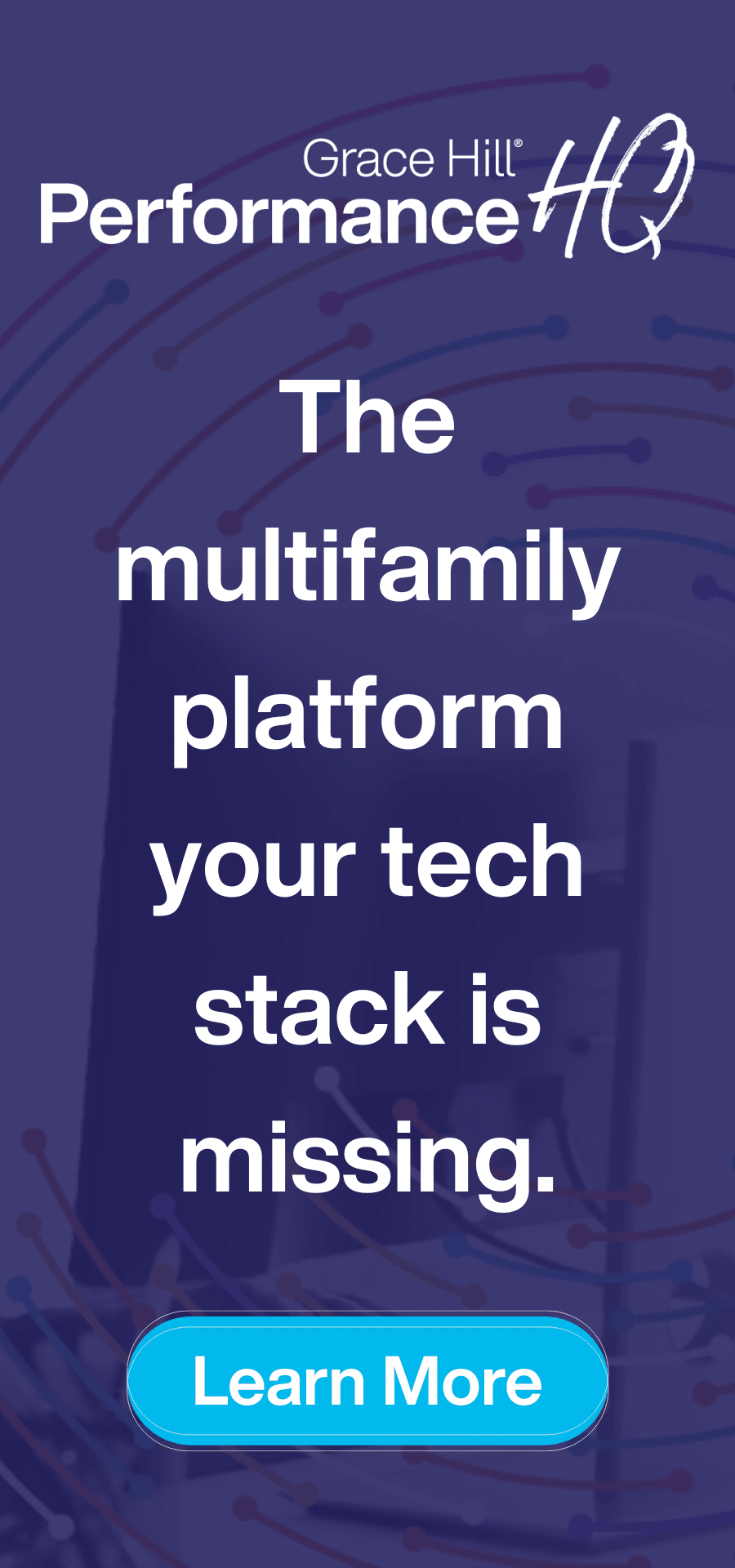Investing in training is essential for building a knowledgeable and high-performing multifamily team, but keeping employees engaged in ongoing learning can be a challenge. Leasing agents, maintenance staff, and property managers juggle multiple responsibilities, making it easy for training to fall by the wayside. By incorporating strategic incentives, property management leaders can turn training into an exciting opportunity rather than just another requirement.
In this blog, we’ll explore why training incentives matter, common challenges in engagement, and effective ways to motivate teams through healthy competition, recognition, and valuable rewards. Plus, we’ll share best practices to ensure your training programs drive long-term success.
Jump to a Section
- Why Training Incentives Matter in Property Management
- Challenges Multifamily Leaders Face in Training Engagement
- 3 Key Ways To Motivate Leasing, Maintenance & Property Teams
- Best Practices for Multifamily Training Incentive Programs
- Final Tips: Keeping Training Engaging & Effective
Why Training Incentives Matter in Property Management
In the multifamily industry, well-trained leasing, maintenance, and property management teams are crucial for providing exceptional resident experiences, maintaining high occupancy rates, ensuring resident satisfaction, and maximizing operational efficiency.
However, keeping employees engaged in training can be challenging, especially when they are already juggling a multitude of day-to-day responsibilities. In this environment, training incentives can be game-changers.
By offering targeted incentives, property management companies can motivate employees to participate in ongoing education, ultimately improving performance and retention.
However, incentivizing training is not just about compliance; it fosters a culture of continuous learning and professional development. Employees who see a direct benefit — such as financial bonuses, extra time off, or promotional opportunities — are more likely to invest effort into training programs. For employers, there’s a benefit to the bottom line, as a well-trained team leads to better customer service, fewer operational mistakes, and a more knowledgeable workforce equipped to handle the complexities of leasing, maintenance, and resident relations.
Additionally, well-trained employees who feel valued and empowered in their roles contribute to lower turnover rates, reducing the costly cycle of hiring and onboarding new team members.
Lastly, training incentives matter in property management because they create a competitive edge. With the increasing demand for skilled property management professionals, companies that prioritize education and reward learning attract top talent.
Leasing agents and property managers who are confident in their skills can close deals more effectively, handle resident concerns with professionalism, and ensure properties run efficiently. Investing in training incentives is not just an expense — it’s a strategic move that enhances employee satisfaction, improves retention, and drives profitability.
Challenges Multifamily Leaders Face in Training Engagement
Encouraging consistent and meaningful participation in training programs is a persistent challenge for multifamily leaders. Without proper incentives, engagement declines, leading to knowledge gaps, inconsistent service quality, and decreased operational efficiency. Employees may view training as time-consuming or irrelevant to their immediate responsibilities, further reducing motivation.
However, designing effective incentives isn’t straightforward. Multifamily organizations must navigate budget constraints, time limitations, and the diverse learning styles of leasing agents, maintenance teams, and corporate staff. Making time for training is a must, but a one-size-fits-all approach often fails, so developing strategies that resonate with different roles and experience levels is essential.
Most importantly, a successful incentive program goes beyond financial rewards. While bonuses or gift cards can be appealing, non-monetary incentives — such as friendly competition, public recognition, career development opportunities, and role-specific rewards — often drive deeper engagement. Creative solutions tailored to industry professionals can transform training from a mandatory task into a valued opportunity for growth and advancement.
3 Key Ways To Motivate Leasing, Maintenance & Property Teams
Investing in training is essential, but keeping your multifamily teams engaged and motivated can be a challenge. You need the right incentives to ensure your leasing, maintenance, and property staff are excited to learn and grow. By fostering friendly competition, celebrating achievements, and offering meaningful rewards, you can create a culture where training is an opportunity for professional growth and success.
Here are three powerful ways to inspire your teams and make training both effective and rewarding.
1. Create Healthy Competition Among Employees
A little friendly competition can go a long way in motivating your multifamily teams to engage in training. When employees see their peers striving for success, they’re more likely to stay committed and push themselves to excel. Here are a few practical ways to spark motivation through competition:
- Leaderboard Tracking – Highlight top training performers on your LMS or company intranet to showcase progress and inspire others to climb the ranks.
- Team-Based Challenges – Reward entire properties or departments with the highest training completion rates to boost camaraderie. Consider offering team incentives like a catered lunch or a shared bonus.
- Recognition Contests – Celebrate individual achievements by awarding prizes to those who complete training the fastest, achieve the highest quiz scores, or show the most improvement over time.
Integrating gamification into your training programs creates an engaging learning environment where employees feel motivated, valued, and eager to succeed. Plus, a little competition fosters teamwork, accountability, and a stronger commitment to professional growth!
2. Recognize & Celebrate Training Achievements
Acknowledging hard work and dedication is one of the most effective ways to keep your leasing, maintenance, and property teams engaged. Public recognition boosts morale and reinforces a culture of continuous learning and professional development. Employees who feel valued for their efforts are more likely to stay motivated and committed to excellence.
Here are some recognition strategies to consider:
- Shoutouts in company meetings or emails – Highlight employees who have completed training or excelled in key areas.
- Spotlight in a property-wide newsletter or social platform – Showcase their achievements to inspire others.
- Handwritten thank-you notes or personalized emails – A thoughtful touch that shows genuine appreciation.
- One-on-one praise from regional or senior leadership – Personal recognition from higher-ups makes a lasting impact.
- Digital badges or certificates – Give employees a sense of accomplishment they can proudly display.
By celebrating training achievements in meaningful ways, you create an environment where learning is valued, employees feel appreciated, and your multifamily teams are empowered to thrive.
3. Offer Valuable Incentives for Completion
A strong training incentive program goes beyond basic rewards; it should inspire employees to actively participate and see training as a stepping stone to success. Offering a mix of monetary and non-monetary incentives keeps motivation high and ensures employees feel valued for their efforts. Recognize your team’s development and celebrate top performers with awards and leaderboards!
In a recent Kennect article, “Five Key Trends in Incentive Compensation for 2025,” the following areas are highlighted for consideration:
- Increased Investment in Equity Compensation – A 2023 National Center for Employee Ownership (NCEO) study found that 70% of companies offering equity compensation reported increased employee retention and satisfaction.
- Focus on Non-Base-Pay and Non-Cash Elements – A Gallup study showed that 50% of employees favor non-cash rewards.
- Increased Use of Recognition Programs – Towers Watson research showed that 65% of companies with recognition programs experienced improved employee performance and morale.
- Activity-Based Incentives – For leasing agents, this might include the number of leases signed or positive feedback on resident satisfaction surveys. With maintenance teams, you could focus on completed work orders or preventative maintenance completion, whereas your property managers might have incentives tied to occupancy rates or budget management.
- Gamification & AI Integration – A Salesforce study found that gamification boosts motivation for 71% of employees.
Keeping those trends in mind, here are a few impactful ways to reward training completion:
- Time-Based Perks – Allow top performers to leave early, take an extra break, or enjoy flexible scheduling as a reward for completing training modules.
- Event Incentives: Highlight employees’ commitment to professional growth by providing opportunities such as VIP access, room upgrades at industry conferences, or special recognition at company events.
- Property-Based Discounts – Offer rent reductions, utility bill discounts, or exclusive property amenities as incentives to complete certifications or advanced training.
- Career Advancement Opportunities: Link training completion to salary increases, promotions, or leadership development programs, reinforcing that continuous learning leads to long-term career success.
By aligning incentives with employees’ professional and personal goals, multifamily organizations can foster a culture of growth, motivation, and retention. When employees see real benefits tied to their development, they are more likely to stay engaged and committed to excellence.
Best Practices for Multifamily Training Incentive Programs
It’s important to be strategic, adaptable, and intentional when designing an effective incentive program. Here are some best practices to help you implement incentives that drive participation and long-term success.
✅ Start Small & Measure Impact – Launching an incentive program doesn’t have to be overwhelming. Begin with one targeted incentive — such as a gift card for completing a certification or a bonus for achieving a training milestone — and track its effectiveness. Use feedback from participants to refine and expand the program over time.
✅ Customize Incentives for Different Roles – A one-size-fits-all approach won’t maximize engagement. Leasing agents might be motivated by commission bonuses or exclusive networking opportunities, while maintenance teams may value tool stipends or paid time off. Tailor incentives to address each team’s unique challenges and goals within your multifamily community.
✅ Keep It Fresh & Engaging – To maintain long-term participation, rotate incentives regularly. Introduce friendly competitions, team-based rewards, or surprise perks to sustain enthusiasm. Publicly recognizing employees also adds an extra layer of motivation and reinforces a culture of continuous learning.
By implementing these best practices, your multifamily training incentives will not only encourage skill development but also boost job satisfaction, team morale, and overall operational excellence.
Final Tips: Keeping Training Engaging & Effective
Effective training incentives do more than just encourage participation — they create a culture of continuous learning, boost employee retention, enhance resident satisfaction, and drive operational success. To maximize the impact of your training programs, multifamily leaders should take a strategic and dynamic approach, continuously evaluating what resonates most with their teams.
Key Strategies for Success
- Make It Interactive: Incorporate gamification, role-playing scenarios, and hands-on learning experiences to keep employees engaged.
- Encourage Friendly Competition: Leaderboards, team challenges, and training milestones can spark motivation and foster a sense of achievement.
- Recognize and Reward Effort: Acknowledge employees who excel in training with shoutouts in company meetings, digital badges, or special incentives like gift cards or an extra day off.
- Provide Real-World Application: Ensure training directly connects to daily job responsibilities, giving employees the tools to perform confidently and efficiently.
- Gather Feedback and Adjust: Regularly ask employees what’s working and what could be improved, refining your training approach to meet evolving needs.
By leveraging a mix of competition, recognition, and meaningful rewards, property management organizations can create a thriving learning environment where employees feel empowered to grow. Investing in engaging training programs doesn’t just strengthen teams — it transforms them into high-performing, customer-focused professionals ready to elevate the resident experience.
Ready to take your training to the next level and empower your multifamily teams to succeed? Talk to a Grace Hill expert today!


 Customer Support
Customer Support



